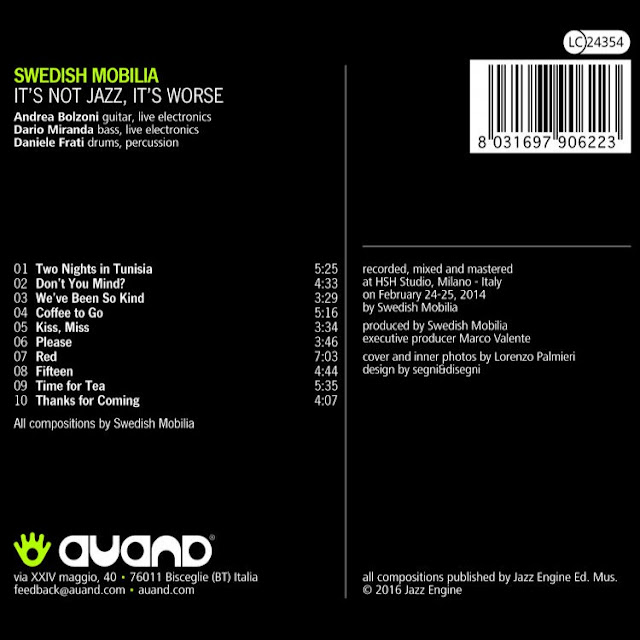In his second album as leader, Leandro Cabral presents a grandious and yet introspective sound. Adding the precious acoustics of the Alfa theater, where the live recording sessions took place, to the well sedimented affinity of his trio and to the original compositions which engage on a brazilian contemporary world, Alfa is a singular album.
Accompanied by young musicians of high notability in their generation – Sidiel Vieira on acoustic bass and Vitor Cabral on the drums and percussion. Leandro proposes an interaction between brazilian music, jazz improvisation and a sort of introspection from the european jazz. On the album’s sole song there is the special attendance of the newly known “revelation” singer Vanessa Moreno and of the great saxophonist Cássio Ferreira.
Counterpoint structures, pulsating ancestral rhythmic claves, spaces and textures give their own colours. The liberty in interpreting each new performance creates a particular identity. A subtle and profound interaction occurs through a dance between the instruments and idioms. His piano has a comtemporary jazz character and some of his compositions have their roots in unusual brazilian rhythms for this ensemble such as the vassi (“O amor que se deu – Vassi n.2” and “Rute e sua grandeza – Vassi n.1”) and the ijexá (“Alfa”), both of them original from the percussive universe of Bahia. There is also space for bold arrangements of brazilian classics like “Rapaz de Bem” (Johnny Alf), “Inútil Paisagem” (“If You Never Come to Me”) and “Outra Vez” (A. C. Jobim).
With absolute attention to every detail, all in all was carefully selected. The theater, the piano Steinway D Hamburg – which was chosen by Nelson Freire at the german factory – an impeccable audio capture and videos that reveal the essence of the album. Alfa opens a new path.

“Reflecting about the sound properties in an interview, which was later published in the book ‘On Music’, Karlheinz Stockhausen concludes that pitch was overrated during the period when the tonal music was prevalent. On the opposite pole, duration was ill-favored, maybe by the fact that the other properties presuppose it one way or another. Stockhausen denounces the misstep of this judgement, precisely because duration can bear a temporal phenomenon that is impossible for the other properties. The duration is capable of bearing silence. Silence is decisive for music. It confines initially the sound events. However, as soon as the whole of the musical play constitutes itself and intensifies itself by the aesthetical enjoyment, it is not rare for the situation to overturn, and the silences might as well act positively as the work’s kernel, submitting all resound to the function of delimiting its existence. Attentive to the subtleness of this condition, Leandro Cabral allows the emptiness, the spaces and the silence to conduct ever since the composition of his pieces to their incarnation in the album that arrives. For this reason, let us also permit ourselves to be conducted and to be capable of receiving it by it.
‘Thirty convergent rays build up the wheel, but it is the central emptiness that makes it whirl (…) Walls and doors build up the house, but it is the inner emptiness the makes it habitable (…) The path is empty, so it can be walked, it can never be fulfilled (…); empty as such, similar to a bellows, its music is inexhaustible.’ Tao Te King 4, 5, 11.”
Silvio Moreira – Aesthete and professor M.A. at Souza Lima & Berklee faculty
01. O amor que se deu – Vassi n.2 (Leandro Cabral)
02. Outra vez (A.C. Jobim)
03. Rapaz de bem (Johnny Alf)
04. Rute e sua grandeza – Vassi n.1 (Leandro Cabral)
05. A dança (Leandro Cabral)
06. O grande azul (Leandro Cabral)
07. Valsa do amanhã (Leandro Cabral)
08. Alfa (Leandro Cabral)
09. Marcela (Leandro Cabral)
10. Inútil Paisagem (A.C. Jobim)
Sidiel Vieira, double bass
Vitor Cabral, drums & percussion
Guests
Vanessa Moreno, vocals
Cássio Ferreira, sax






















































